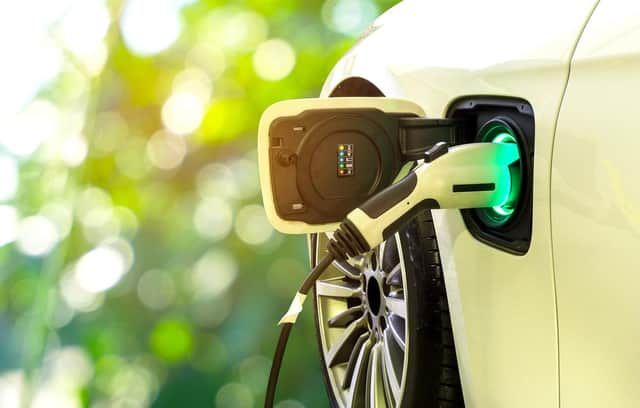Government seeks views on new Z3R0 EM15510N5 number plates


The Department of Transport has launched a consultation on introducing green plates to celebrate and encourage the uptake of electric vehicles, with transport secretary Grant Shapps calling it “a really positive and exciting way to help everyone recognise the increasing number of electric vehicles on our roads”.
This may come as good news to Sheffield residents considering the switch to an electric car, van or bike, as the city is leading the way in developing a Clean Air Zone to cover the inner ring road and city centre from early 2021.
The last four years have seen a remarkable surge in demand for electric vehicles in the UK, with new registrations of plug-in cars rising from 3,500 in 2013 to more than 214,000 by the end of May 2019.
By November, according to figures from the Society of Motor Manufacturers and Traders (SMMT), more than one in ten new cars bought in the UK were either hybrid, plug-in hybrid or pure electric – equivalent to 16,052 cars that month alone.
Battery-powered vehicles reached a record market share of 10.2 per cent, up from 9.9 per cent the previous month: the number of new electric cars joining the roads in November more than tripled to 4,652, up from only 1,415 a year ago.
And now brand new electric vehicles could bear a distinctive green licence plate, or a regular plate with a dash of green, depending on the outcome of the consultation.
The aim is for the green licence plates to make the cleanest cars easily identifiable, helping their drivers to benefit from incentives like free or cheaper parking or even the use of bus lanes, in a move which the government hopes will boost the move towards more sustainable transport options and help achieve its target of net zero emissions by 2050.
“The UK is in the driving seat of global efforts to tackle vehicle emissions and climate change and improve air quality, but we want to accelerate our progress,” said Shapps of the plans at the start of the open consultation,which closes on Tuesday, 14 January.
“By increasing awareness of these vehicles and the benefits they bring to their drivers and our environment, we will turbo-charge the zero-emission revolution.”
The three options include a fully green number plate with black lettering; the addition of a green flash on the plate; or the addition of a green dot or symbol to “differentiate vehicles based on their environmental impact, help inform road users and normalise the idea of clean vehicles”.
The UK government points to a trial in Ontario, Canada, where there was an increase in electric vehicle registrations after drivers were given free access to toll lanes and high occupancy vehicle lanes.
The announcement marks another milestone for the government’s Road to Zero Strategy, a £1.5 billion package of measures which it says has helped the UK to reach record numbers of zero emission vehicles registered.
The target to be the first G7 country to legislate for net zero emissions by 2050 “puts the UK on track to end our contribution to climate change, becoming one of the first major economies to legislate for net zero emissions,” adds Shapps.
But in the past the SMMT has called on the government to go further to increase the take-up of ultra-low emission vehicles and meet CO2 reduction targets, saying: "To grow zero- and ultra-low emission vehicle uptake to the levels needed to make a meaningful impact on CO2 and air quality, consumers’ concerns over affordability and convenience must be addressed."
The industry body criticised the decision to slash the electric car grant to £3,500 earlier in 2019, though £8,000 grants for electric vans and £1,500 towards the cost of an electric motorbike are still available, as well as £7,500 towards a fully electric taxi.
Research by EDF Energy shows that the average lifetime cost of charging an electric vehicle is just over £15,000, meaning drivers could save over £41,000 on fuel by going electric; there are subsidies for home-charging points for both new and used electric and plug-in hybrid car buyers available from the Office for Low Emission Vehicles.
“The number of clean vehicles on our roads is increasing but we don’t notice as it’s difficult to tell clean vehicles apart from more polluting ones,” says Elisabeth Costa, senior director at the Behavioural Insights Team, known as the government's 'nudge unit'.
“Green number plates make these vehicles, and our decision to drive in a more environmentally-friendly way, more visible on roads. We think making the changing social norm noticeable will help encourage more of us to swap our cars for cleaner options.”
Whether you’re going for Z3R0 EM15510N5 or something a little closer to home, a personalised number plate could make all the difference to any vehicle. See CarReg for details on how to create your own bespoke licence plate today.